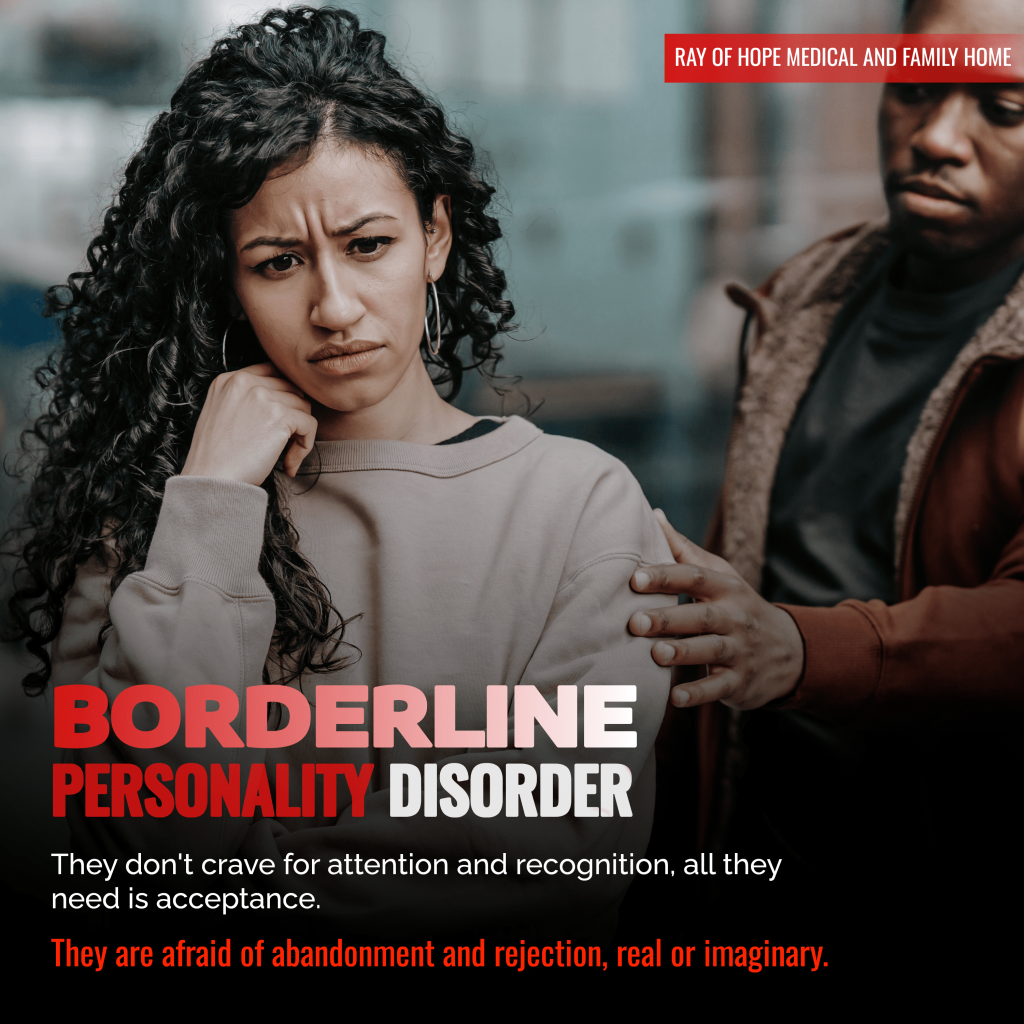Borderline Personality & Love — 8 Reasons Why Relationships Fail And How To Cope

Relationships involving a partner having borderline personality disorder (BPD), on many occasions fall apart even when the other partner is playing their part. Being in a romantic relationship is a two-way traffic, it calls for both partners to play their part accordingly to ensure a stable relationship. Terrifying at first glance as it may seem, the good news is that healthy relationships can be attained.
This post explains how BPD affects romantic relationships, what are some common challenges and pitfalls, and how to cope.
What is borderline personality disorder?
Borderline personality disorder is a mental condition where an individual is faced with challenges in controlling their emotions, maintaining stable relationships, disturbance with self-image and impulsive behavior with a persistent pattern causing impairment in social functioning and other important areas of functioning.
You might think that what they crave for is attention and a sense of being recognized but the fact is that they’re suffering with pain and guilt and all they need is acceptance. However, this may be overwhelming to the other partner since they may be extremely demanding.
You might think that what they crave for is attention and a sense of being recognized but the fact is that they’re suffering with pain and guilt and all they need is acceptance. However, this may be overwhelming to the other partner since they may be extremely demanding.
Reasons why relationships fail
A romantic relationship with someone with BPD can be described as being “stormy”. It’s not uncommon to experience a great deal of turmoil and dysfunction.
Fear of abandonment and or rejection
Someone living with this condition may always look out for signs of abandonment—real or imagined in a relationship. A slight change of plans such as failing to arrive in time at an agreed destination or failure to reply a text message may potentially incite anxiety, anger and fear that you are planning to abandon them. In most cases they tend to flee from relationships before the anticipated breakup catches them.
They may at times also cause public scenes, do self-mutilating acts such as cutting and burning once they sense abandonment.
Black and white thinking
This is also known as splitting or dichotomous thinking. An individual tends to see everything around them at its extreme such as, either good or bad. When a relationship is very new, they praise, care and adore the new partner as though he/she is spotless. They always think that they have found a perfect match—one to solve all their emotional insecurities, this is known as idealization.
As time progresses, they find out that the person they considered perfect is not up to what they thought and that he/she can’t care as they demand. They start seeing this person as a threat to their relationship. This is called devaluation.
Impulsive sexuality
An individual may be involved in many sexual relations at a time, this is due to the continuous movement from one relationship to another. However, some of them tend to revisit their old relationships when they feel guilty. Given the fact that they can be extremely intimate at the first time, they may find themselves in unintentional sex. This can make the other partner insecure and frustrated.
Mood swings
A partner living with this condition can have unstable moods—unpredictable cycles of highs and lows can be very scary and frustrating to the other partner. Their moods may change suddenly from good to bad in just a few minutes, this may then take hours or if worse few days to return to normal and then followed by a stable period.
All this can be confusing and distressing to the other partner most especially if they are not aware of the condition.
Unrealistic expectations
An individual living with BPD tends to look for a relationship as a solution for all his/her emotional needs. Once they find one, they are so much in nurturing their significant other to be able to fulfill their emotional needs a call away. When the other partner does not provide the care they need, they may anticipate abandonment and or rejection.
Ineffective ways of meeting needs
Individuals living with this condition can be manipulative at times especially when they are questioning something. This may not be manipulation as it may sound, all they want is to be heard. An individual may pose serious threats of ending a relationship just to be sure that you are caring and still love them.
Unfortunately to the other partner, this may be emotionally manipulative and they think their partners are not satisfied in their relationship.
High sensitivity
An individual may interpret small issues as being very big and serious. For example, a small misunderstanding can make him/her anxious, distressed and worried of an imminent abandonment.
Loss of interest
Individuals with borderline personality disorder may have a pattern of undermining themselves at the time a goal is about to be realized. This can be, destroying a good relationship just when it is clear that the relationship could last.

Top-notch health care for your loved ones
At Ray of Hope Medical, we provide both mental and medical health care services to all age groups.
How to cope?
Seek professional help
The most effective treatment for BPD is psychotherapy, especially dialectical behavior therapy (DBT). DBT teaches you how to regulate your emotions, cope with distress, improve your interpersonal skills, and build a positive self-image. It can also help you develop a more realistic and balanced view of yourself and others.
Therapy can also benefit the partner without this condition, as they can learn how to understand, support, and communicate with their partner. They can also address their own mental health needs and set healthy boundaries.
Educate yourself
Learning more about BPD and how it affects relationships can help both partners gain insight, empathy, and awareness. It can also help them recognize the signs and symptoms of BPD, as well as the triggers and patterns that may cause problems.
There are many books, websites, and online forums that offer information and advice on BPD and relationships. Some examples are Psych Central, Verywell Mind, and BPD Central.
Practice self-care
Taking care of oneself is essential for both partners in a relationship. Self-care involves engaging in activities that promote physical, mental, and emotional well-being, such as exercise, meditation, hobbies, and socializing.
Self-care can help both partners reduce stress, boost mood, and increase resilience. It can also help them maintain their sense of identity and independence, which can prevent codependency and resentment.
Be supportive and compassionate
Both partners in a relationship need to show each other support and compassion. This means being attentive, respectful, and encouraging, as well as being honest, assertive, and firm. It also means being empathetic, understanding, and forgiving, as well as being realistic, optimistic, and hopeful.
Support and compassion can help both partners feel valued, appreciated, and loved, as well as motivated, inspired, and empowered.
read our articles first!
A word from Ray of Hope
Though it may seem hard and bothersome at first, it is very much possible to achieve a healthy long-lasting relationship and a better quality of life, most especially if you love and support your partner. He/she may be your heaven sent soulmate.





Leave a Reply